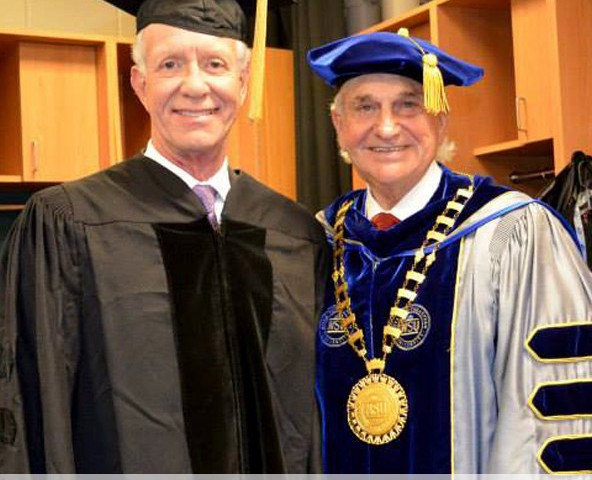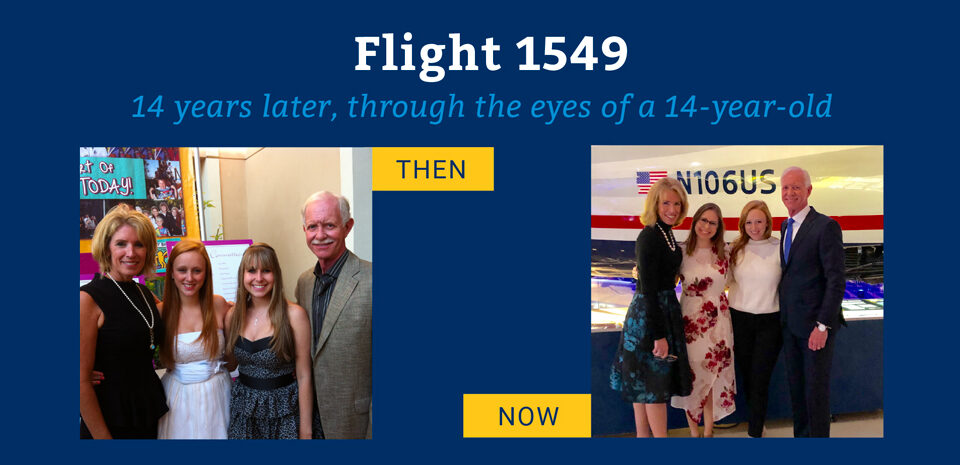A Lifetime of Learning is a Gift

Captain Sullenberger To Be Honored At Santa Monica American Red Cross Gala
April 28, 2014
Lessons Learned at Great Cost: Will We Act or Just File Them Away?
June 26, 2014It’s commencement season, a time of year young people hear a lot of advice and a lot of speeches about the promise and challenges of the lives that lie ahead. But even if you don’t don a cap and gown, I’ve been thinking about something that I think all Americans could benefit from, and that is a commitment to lifelong learning.
My mother was an educator – she taught first grade for 25 years and from her I received two great gifts: a lifelong love of reading and of learning. With these two gifts, you can learn anything. And chances are you will have to. Regardless of your line of work or the career that you aspire to, most of us can no longer get through an entire lifetime with only one skill set.
 I’ve seen this truth in my own life. At the age of 58, after four decades as a pilot, I faced the sudden need to reinvent myself, learning very quickly a new way of living as an author, speaker and safety and organizational consultant. It wasn’t always easy and in my case, it all happened on the public stage. But with the pace of global change only accelerating, more and more of us face a similar challenge to remain current and relevant in the world.
I’ve seen this truth in my own life. At the age of 58, after four decades as a pilot, I faced the sudden need to reinvent myself, learning very quickly a new way of living as an author, speaker and safety and organizational consultant. It wasn’t always easy and in my case, it all happened on the public stage. But with the pace of global change only accelerating, more and more of us face a similar challenge to remain current and relevant in the world.
We must continue to see new connections, to discover the interrelatedness of things in life, to gain experience and wisdom by paying attention along the way. This is especially true in the area of scientific literacy. I’m not talking about learning to code or discovering a cure for cancer. I’m talking about a way of understanding the rapidly changing world around us. According to the National Science Education Standards, scientific literacy means “that a person can ask, find, or determine answers to questions derived from curiosity about everyday experiences.”
Scientific literacy has never been more crucial to our future. In our lives, we will have to overcome hatred, injustice and ignorance – and the worst, most dangerous kind of ignorance is willful.

Giving Commencement Speech at Nova Southeastern University
That’s why I believe that scientific literacy is not only a civic duty, it is a personal responsibility. Whether the issue is climate change, the implications of “big data,” how best to meet our veterans’ health needs, the epidemic of gun violence , our country’s rapidly rising rate of obesity-related illness, or even the individual and collective benefits of vaccinating our children, it’s important that citizens make informed decisions — as voters, as consumers and as parents.
The purpose of science is to provide humankind with a more complete and accurate understanding of reality. I hope the summer can be for you and your families a time of learning, reading and together, discussing the issues of the day.
Warmly,
Sully


